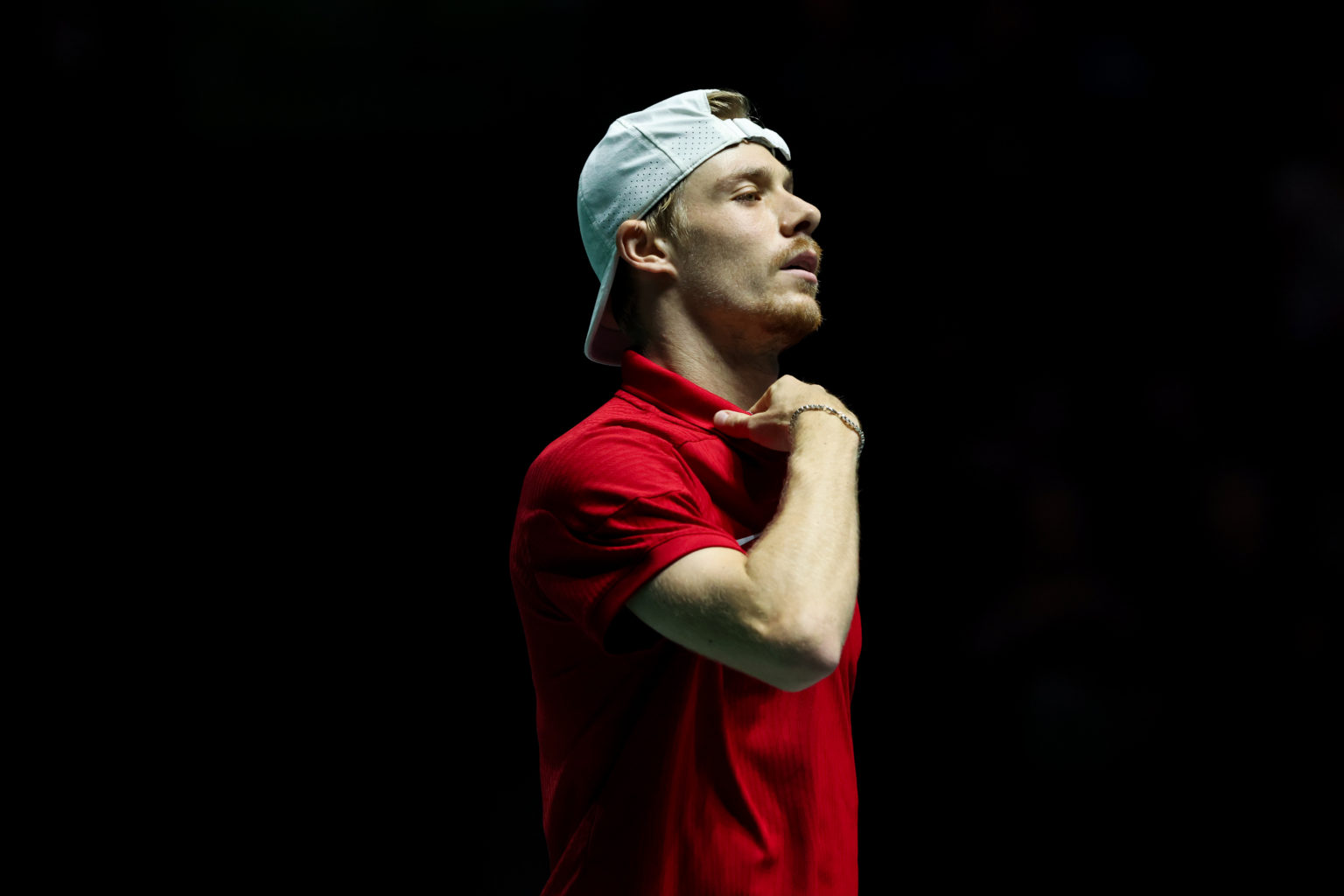
Denis Shapovalov, once regarded as a rising star destined for the ATP’s top 10, has endured a difficult and tumultuous journey in recent years. His most recent controversy came during the Washington Open, where a fallout with the ATP left him frustrated and disillusioned with the tour. Shapovalov, a player known for his explosive energy and dynamic shot-making, has been dealing with a series of setbacks that have significantly impacted his career trajectory.
Shapovalov’s struggles date back to 2023, when he was sidelined for six months due to a knee injury sustained at Wimbledon. The injury not only kept him off the court but also disrupted his rhythm and halted his ascent up the rankings. At one point, Shapovalov seemed poised to become a permanent fixture in the ATP top 10, a player capable of challenging the very best. However, since his injury, the Canadian has found it difficult to regain his form and confidence, resulting in inconsistent performances.
His return to the tour in 2024 was marked by a focus on the hard-court season, a surface where he had previously thrived. However, Shapovalov’s summer took a sharp turn at the Washington Open when he was defaulted after a heated exchange with a fan. The incident left him rattled, and the consequences were severe. Initially, Shapovalov lost not only his earnings from the tournament but also valuable ATP ranking points. Although the ranking points were later restored, the Canadian remained disillusioned with how the situation was handled by the ATP.
In an interview, Shapovalov opened up about the impact of the incident on his mental and emotional state. He admitted that the fallout from the Washington Open had weighed heavily on him, affecting his focus and performance in subsequent tournaments. “In Montreal, I was much more focused, and I couldn’t display my best tennis, which showed at the US Open,” he said. Shapovalov’s disappointment with the ATP’s decision was clear, particularly regarding the financial aspect of the penalty. “It stayed in my mind; I was very upset, even though they gave me back the 100 points from the decision, I lost all the money. If we deduct the fine and taxes, they sent me a check for $154. It was kind of an insult to me,” he explained, emphasizing the frustration he felt from what he viewed as an unfair punishment.
For Shapovalov, the situation was made worse by what he saw as a double standard within the ATP. “The ATP didn’t admit they were wrong. There are players who have done much worse things than mine and haven’t received significant punishments. I was unlucky, and I am still upset because they didn’t admit their mistake,” he shared, highlighting the inconsistency in the way discipline is handled on the tour. The experience left him questioning his commitment to the sport. “At that time, I didn’t want to play tennis, but after the Davis Cup, it got better,” he added, indicating that the team environment and national pride had helped rekindle his passion for the game.
Shapovalov’s comments reflect the broader challenge he has faced throughout his career—balancing his raw talent with emotional maturity. On his best days, Shapovalov is one of the most exciting players to watch, with a flashy playing style that includes powerful groundstrokes, a big serve, and an aggressive mindset. However, his emotional outbursts and lack of consistency have often overshadowed his potential. In high-pressure situations, his frustration can boil over, leading to unforced errors and lapses in concentration that cost him key matches.
This pattern has been a recurring theme in Shapovalov’s career, and many believe that his next step in development must involve improving his mental discipline. Tennis, particularly at the highest level, demands not just physical skill but also psychological resilience. For Shapovalov to contend with the best in the world again, he will need to learn how to channel his energy into maintaining composure, even when things aren’t going his way on the court.
His aggressive playing style, while thrilling to watch, can sometimes backfire when he presses too hard or becomes overly emotional. Shapovalov’s game is built on taking risks, going for big shots, and playing at a high tempo, but this approach requires a level of mental clarity and strategic patience that he has struggled to maintain consistently. His tendency to let frustration get the better of him has led to numerous missed opportunities, and if he wants to climb back into the upper echelons of the ATP rankings, he will need to find a way to manage these emotional spikes.
The good news for Shapovalov is that time is on his side. At 25, he is still relatively young in tennis terms and has the potential to refine his game and mental approach. Many players, including some of the sport’s greats, have experienced periods of struggle and emotional volatility before finding the balance needed to succeed at the highest level. If Shapovalov can use this difficult period as a learning experience and focus on the mental side of his game, there’s no reason he can’t return to the top 10 and compete for major titles.
As he prepares for the upcoming 2025 season, Shapovalov has an opportunity to reset and refocus. The lessons from his fallout with the ATP and his struggles with consistency could ultimately serve as a turning point in his career. By working on his mental game and continuing to refine his physical skills, Shapovalov can transform his immense talent into sustained success on the tour.
For now, though, it remains to be seen whether Denis Shapovalov will be able to put the past behind him and mature into the consistent contender many once believed he would become. The potential is there, but the challenge will be whether he can maintain his focus, control his emotions, and fully commit to realizing the talent that has captivated tennis fans since his breakthrough.
Leave a Reply